Today we intended to visit the little town of Tubac, which is full of colorful shops and fun things to see. However, a flat tire just a couple of miles from home put an end to that plan. Instead, we drove the car with the donut tire on it all the way to Tucson to get it taken care of at the tire shop where Mr. S does his tire business. We barely got back in time for a quick dip in the swimming pool before it closed at 5:00.
Consequently, I have no fantastic pictures to share from today. So I will backtrack to Tuesday, when I went with Ms R to a horsehair pottery activity at the clay studio. It was scheduled for 10:00, but when we arrived we found the kilns occupied with Raku pottery; weather had caused rescheduling, and it was taking a long time. We waited at least an hour and a half before the horsehair pottery projects could be fired. But that meant I got to see most of the process that must be done to produce a Raku piece!
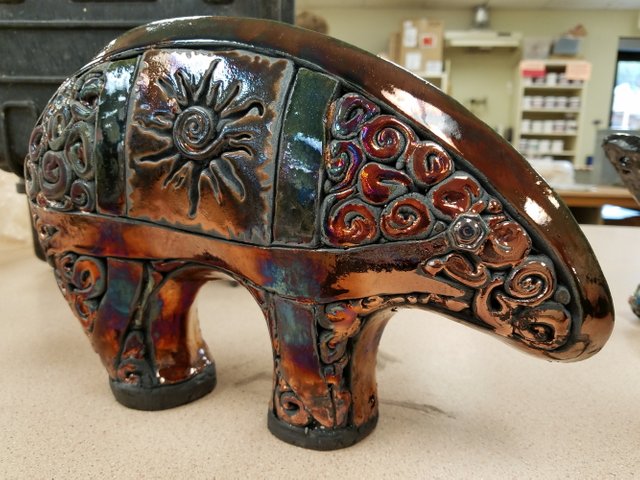 This is one of my favorite finished pieces. Ms. R. explained to me that the pieces had already been bisque fired, and then were placed in the kiln for the final firing at a higher temperature.
This is one of my favorite finished pieces. Ms. R. explained to me that the pieces had already been bisque fired, and then were placed in the kiln for the final firing at a higher temperature.
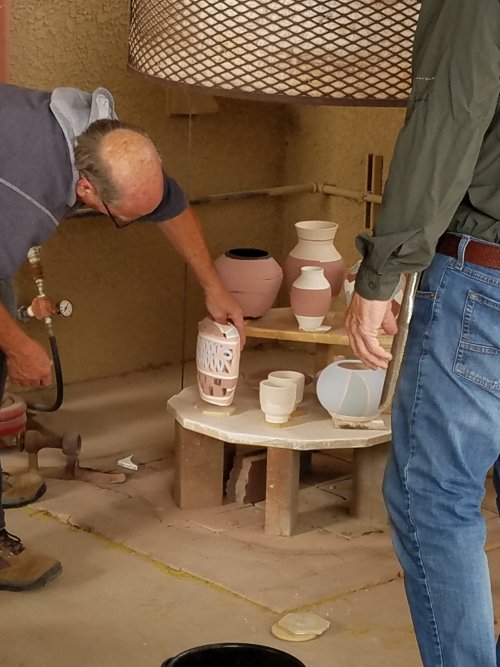 The shelves in the kiln are carefully loaded with pieces ready for the Raku firing.
The shelves in the kiln are carefully loaded with pieces ready for the Raku firing.
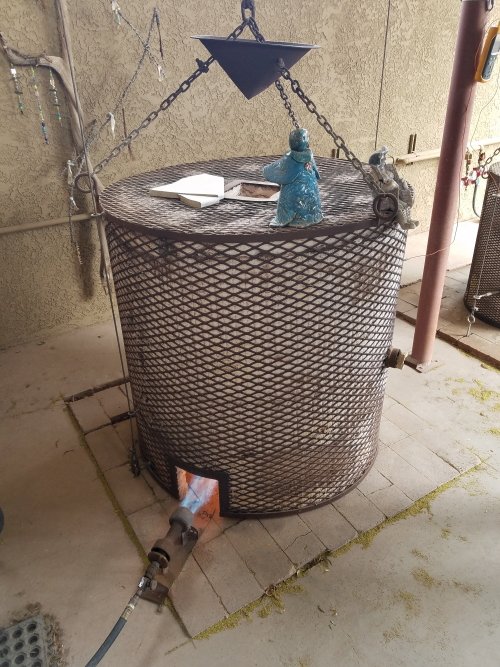 A system of counterweights was used to lower the outside of the kiln over the shelves. Then the gas was lit and the kiln began to heat up.
A system of counterweights was used to lower the outside of the kiln over the shelves. Then the gas was lit and the kiln began to heat up.
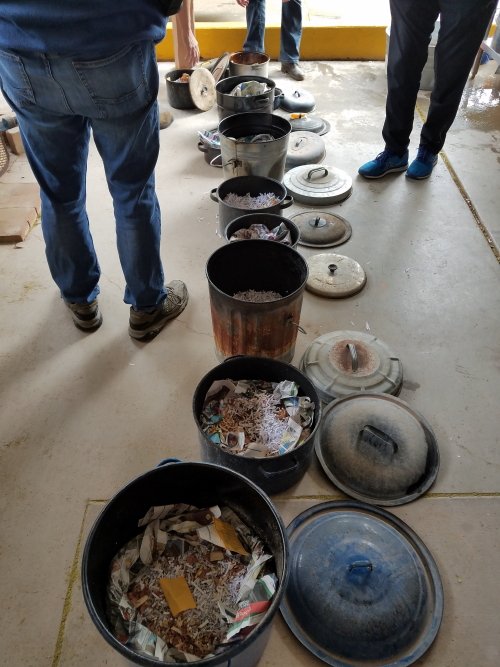 While the pottery was being fired in the kiln, assistants lined up a motley row of containers, including old canning kettles, ash buckets, and roaster pans, and lined them with shredded paper and pieces of newspaper.
While the pottery was being fired in the kiln, assistants lined up a motley row of containers, including old canning kettles, ash buckets, and roaster pans, and lined them with shredded paper and pieces of newspaper.
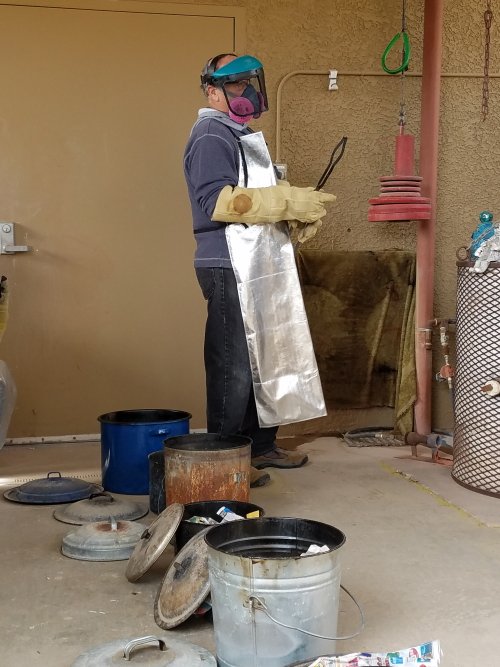 The tongs, mask, gloves, and fire-resisitant apron are all necessary protections for the man tasked with removing the hot pottery from the kiln.
The tongs, mask, gloves, and fire-resisitant apron are all necessary protections for the man tasked with removing the hot pottery from the kiln.
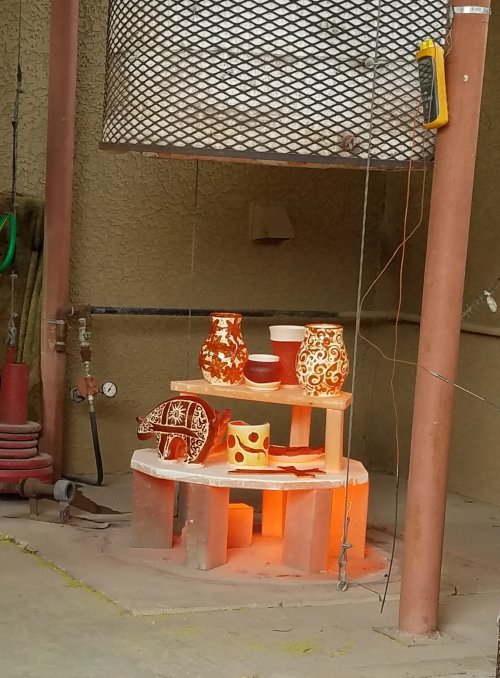 All the pieces were glowing orange with heat when the outside of the kiln was finally lifted.
All the pieces were glowing orange with heat when the outside of the kiln was finally lifted.
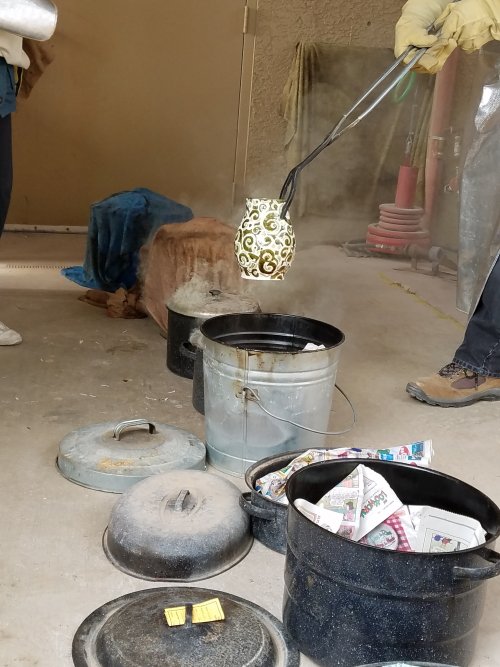 A vase is carefully lifted with tongs from the kiln and set into one of the prepared containers.
A vase is carefully lifted with tongs from the kiln and set into one of the prepared containers.
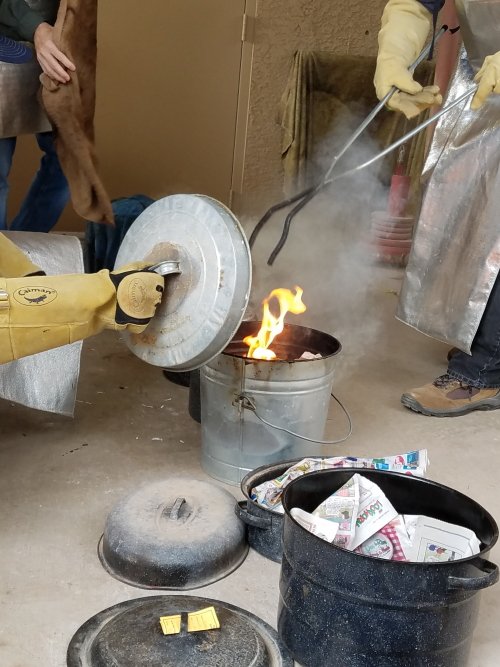 The heat from the vase sets the paper on fire inside the container. An assistant is ready to put the lid on quickly.
The heat from the vase sets the paper on fire inside the container. An assistant is ready to put the lid on quickly.
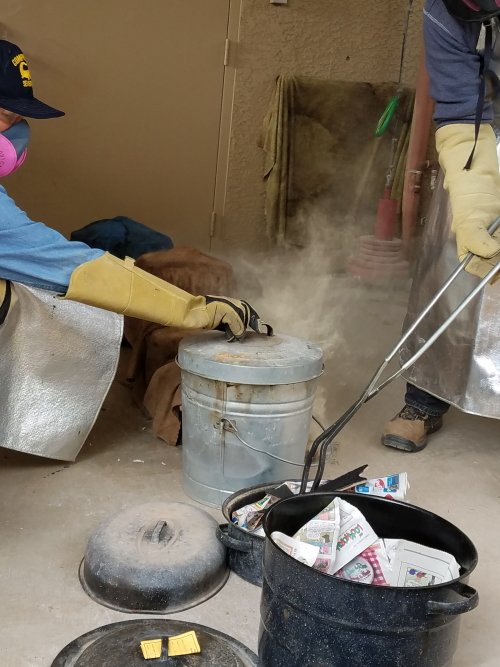 Once the lid is on, most of the smoke stays inside. That's what causes the glaze to turn color and craze. It is a highly unpredictable process, as some pieces may break or the colors may not turn out the way the potter had hoped. Some people enjoy that unknown outcome, while others prefer to stick to more predictable firing processes.
Once the lid is on, most of the smoke stays inside. That's what causes the glaze to turn color and craze. It is a highly unpredictable process, as some pieces may break or the colors may not turn out the way the potter had hoped. Some people enjoy that unknown outcome, while others prefer to stick to more predictable firing processes.
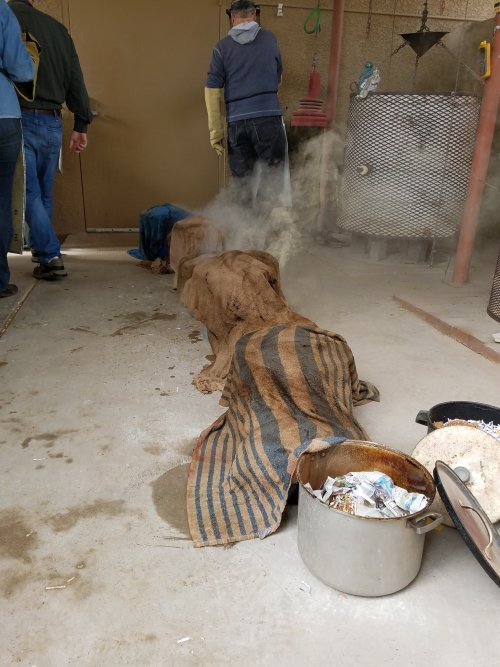 After all the containers were filled and the lids had been added, the assistants threw wet towels over the entire row. The main reason for this is to keep the odor minimized while all that paper burns. The chemical reaction with the glazes and the clay don't smell very nice. The occupants of neighboring buildings were unhappy with the strong odors, so this method is used to control it.
After all the containers were filled and the lids had been added, the assistants threw wet towels over the entire row. The main reason for this is to keep the odor minimized while all that paper burns. The chemical reaction with the glazes and the clay don't smell very nice. The occupants of neighboring buildings were unhappy with the strong odors, so this method is used to control it.
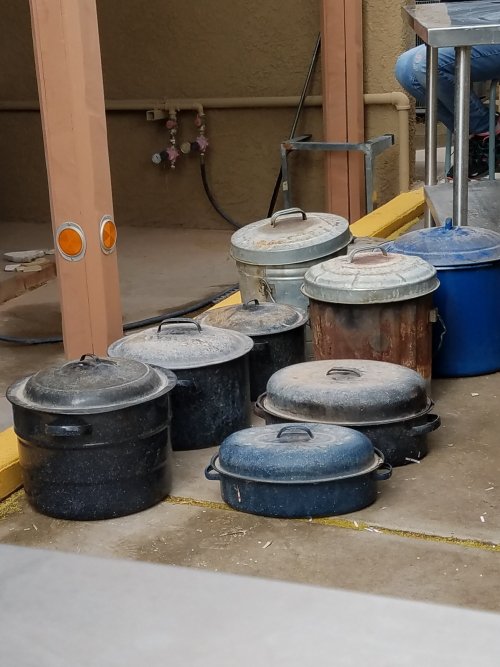 When the burning had stopped, the containers were moved out of the way so another batch could be readied.
When the burning had stopped, the containers were moved out of the way so another batch could be readied.
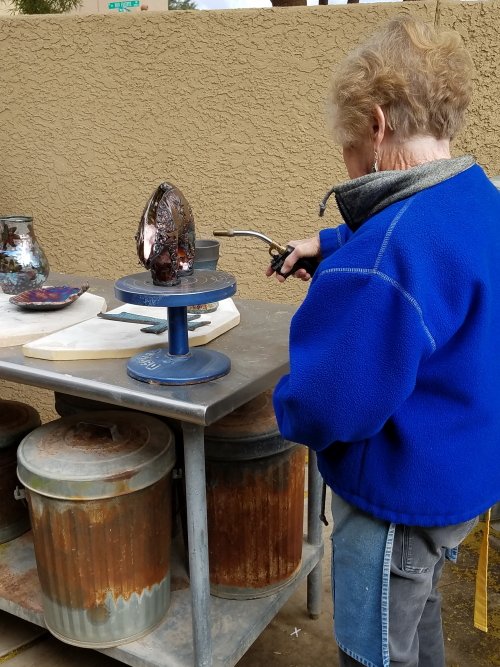 After the projects had cooled enough to handle them with welding gloves, the assistants moved the pieces to a table. Some of the potters chose to use a propane torch to bring out the color on their piece.
After the projects had cooled enough to handle them with welding gloves, the assistants moved the pieces to a table. Some of the potters chose to use a propane torch to bring out the color on their piece.
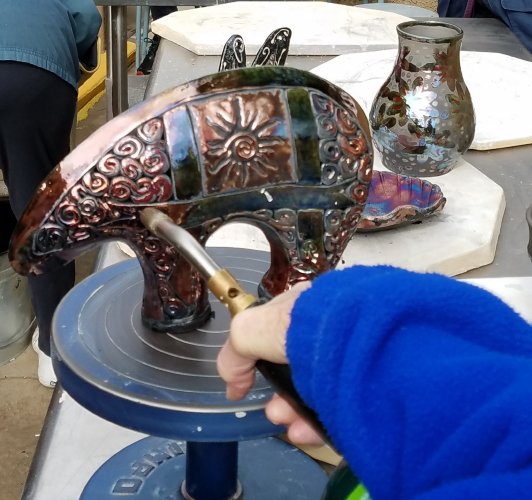
.
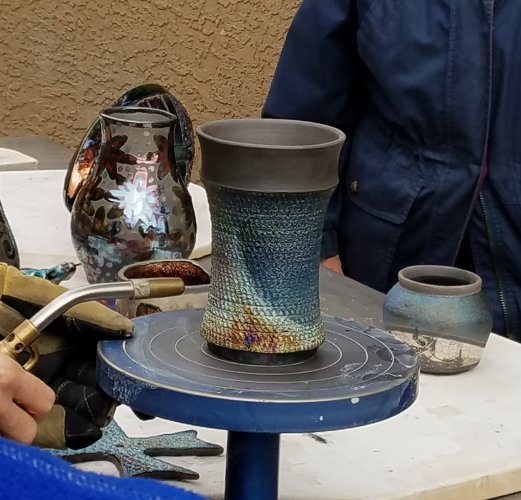
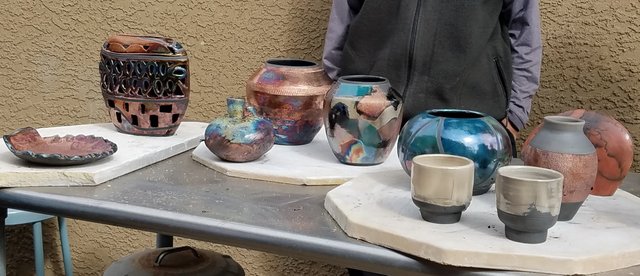 The finished products must cool for quite some time before they can be handled without protective gloves.
The finished products must cool for quite some time before they can be handled without protective gloves.
Note: I am not a potter, so I have explained this as best as I understand it. Feel free to make corrections or add more information in the comments if you are experienced with the Raku process!
All photos taken on my Android phone.















I haven't made anything with pottery since my brief stint in
jailpublic school for 4th grade, although I have done some glazing/painting projects at a local art shop using premade pottery.The glazing/painting is as far as I have ever gotten, but I may become inspired to try something more, after watching all of this!